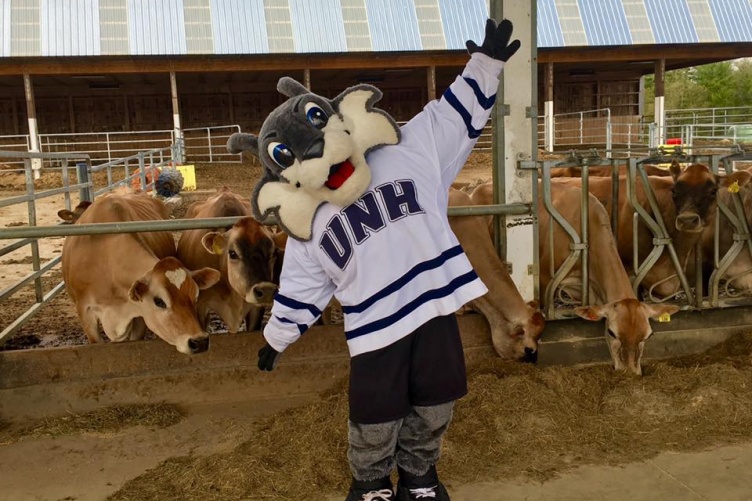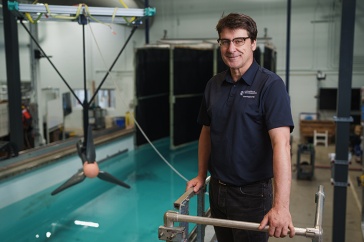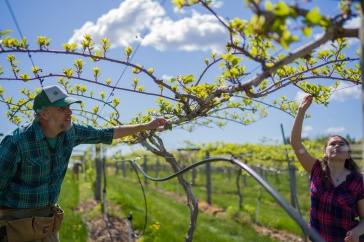
Wild E. Cat loves the Jersey cows at the UNH Organic Dairy Research Farm.
A new grant to UNH researchers will help organic dairies remain profitable in the face of ongoing dairy market changes. Led by Andre Brito, associate professor of agriculture, nutrition, and food systems, the research will develop new science-based management techniques to boost productivity and economic efficiency and, in turn, support the continued supply of New England organic dairy products locally and regionally.
“Organic dairy is undergoing a transition....Given this new reality, the need to enhance production efficiency, feed quality and milk components has become even more critical to ensuring that organic dairy remains a profitable enterprise.”
“Organic dairy is undergoing a transition. After a decade-long ‘boom’ cycle, where demand outpaced production, diminished demand for fluid milk and lower pay prices are acute threats to the sustainability of the organic dairy industry here in New England and elsewhere. Given this new reality, the need to enhance production efficiency, feed quality, and milk components has become even more critical to ensuring that organic dairy remains a profitable enterprise,” says Brito, a scientist with the New Hampshire Agricultural Experiment Station.
With this nearly $2 million grant from the U.S. Department of Agriculture’s National Institute of Food and Agriculture, scientists will test whether forage legume crops common to pastures in the New England and the Midwest—red and white clovers and alfalfa — can help address several pressing challenges facing today's $18 billion organic dairy industry. These include maximizing forage yields and reducing the need for costly grain imports, successfully implementing high-forage diets to capitalize on grass-fed and other specialty milk markets and optimizing the nutritive value of dairy diets to improve yields of milk and milk components, particularly milk fat and protein.
“Forage legumes are key to addressing these challenges and our project aims to identify strategies for optimally utilizing legumes in organic dairy systems; however, in order to successfully capitalize on their benefits, we must also quantify and manage their potential tradeoffs," says Richard Smith, associate professor of natural resources and the environment.
In addition to Brito and Smith, UNH researchers include Marta Lima and Paul Tsang; Brad Heins and Joleen Hadrich at the University of Minnesota; and Juan Romero at University of Maine.
-
Written By:
Lori Gula '06G | NH Agricultural Experiment Station | lori.gula@unh.edu
















































